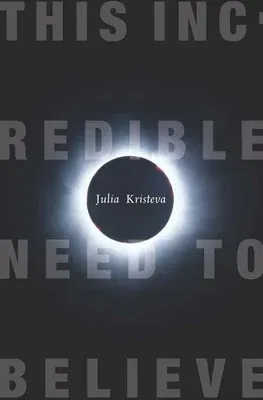Julia Kristeva
(Author)This Incredible Need to BelievePaperback, 25 October 2011

Qty
1
Turbo
Ships in 2 - 3 days
Only 1 left
Free Delivery
Cash on Delivery
15 Days
Free Returns
Secure Checkout

Reading Age
Ages: 22
Grade Levels
17
Part of Series
European Perspectives: A Social Thought and Cultural Criticism
Part of Series
European Perspectives: A Series in Social Thought & Cultural Criticism (Paperback)
Part of Series
European Perspectives: A Series in Social Thought and Cultur
Print Length
136 pages
Language
English
Publisher
Columbia University Press
Date Published
25 Oct 2011
ISBN-10
0231147856
ISBN-13
9780231147859
Description
Product Details
Audience:
Ages: 22
Author:
Book Format:
Paperback
Country of Origin:
US
Date Published:
25 October 2011
Dimensions:
20.32 x
13.97 x
1.02 cm
Educational Level:
Grade Levels: 17
Genre:
Religious
ISBN-10:
0231147856
ISBN-13:
9780231147859
Language:
English
Location:
New York
Pages:
136
Publisher:
Series:
Weight:
117.93 gm